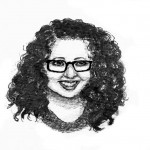The invitations for tomorrow’s undergrad “Inauguration Ball” are written in ornate white script. The lettering is superimposed over a black-and-white photograph of Old Campus, then framed in gold. Tomorrow’s guests must don “elegant attire,” and the ball will be held in a large white tent, the kind that presides over society galas and high school proms. After hors d’oeuvres, University President Peter Salovey will take the stage himself. He and his band, the Professors of Bluegrass, will perform — his own elegant attire punctuated with a double bass.
 Inauguration weekend begins today, and everyone’s been putting on the Ritz. According to an email from my master, tomorrow night Morse students will celebrate with jazz, six kinds of truffles and champagne. Sunday afternoon, I can view the formal ceremony with other undergrads in Battell Chapel, where it will stream on large screens in real time. A public “block party,” held afterward on Hillhouse Avenue, promises fresh popcorn, live salsa and at least one balloon arch.
Inauguration weekend begins today, and everyone’s been putting on the Ritz. According to an email from my master, tomorrow night Morse students will celebrate with jazz, six kinds of truffles and champagne. Sunday afternoon, I can view the formal ceremony with other undergrads in Battell Chapel, where it will stream on large screens in real time. A public “block party,” held afterward on Hillhouse Avenue, promises fresh popcorn, live salsa and at least one balloon arch.
Administrators have carefully cultivated this festive atmosphere. Special Assistant to the President Penelope Laurans told the News that President Salovey wanted ceremonies to be “as inclusive as possible.” “It’s inauguration week; all are invited,” chirped the title of a Tuesday YaleNews feature by Deputy Chief Communications Officer Michael Morand ’87 DIV ’93 — perhaps summing up the sentiment best.
I hesitate to call this weekend’s inauguration a paradigm for inclusivity. Instead, the administration has spun its imperfect, yet benign ceremony into a shaky symbol for a democratic Yale.
Consider the inaugural ball, planned by the YCC with what YCC President Danny Avraham ’15 called “complete” University oversight. With promotional materials that nod at Jay Gatsby and Justin Timberlake, the Ball embraces a big money, high privilege playbook. It’s a subtle endorsement for a lifestyle and universe inaccessible to many, and undermines the spirit of openness supposedly driving this weekend. My suitemate told me the swanky dress code concerns him; he worries he’ll be judged for wearing the clothes he can afford.
This isn’t the only event the administration has pitched as more inclusive than it actually is. The inauguration itself is ticketed, but Tuesday’s YaleNews article has a ready explanation: in Woolsey Hall. “the venue for this ceremony as it has been for six other presidential inaugurations,” seats “will be limited to dignitaries.” From that vantage point, providing undergrads alternate viewing space seems reasonable enough.
But although the University suggests otherwise, the ceremony’s current configuration does not maximize inclusivity at all. First, Sunday’s Woolsey location was by no means a foregone conclusion; in the past, inaugural ceremonies were held at Center Church and Battell. More importantly, other Ivies played the location game one better, favoring outdoor venues that allowed for public proceedings. In September, Princeton installed new president Christopher Eisgruber in an open inauguration on Nassau Hall’s front lawn. That same month, Dartmouth inaugurated Philip J. Hanlon in a non-ticketed ceremony preceded by a campus-wide cookout. Yale’s inauguration is the sole invitation-only event, but you wouldn’t know it from the way the administration has pitched this weekend’s events as the paragon of inclusivity.
At their core, inaugurations are about power. The guard may change, but the overall hierarchy is reinforced. It seems the University hopes to use this weekend as a public relations tool, but as much as they’d like the narrative to be diversity, a closer look reveals a foundation of institutional authority and one man’s starring role.
Case in point: Inauguration Committee chair Daniel Harrison GRD ’86 says the Yale Corporation — which last year appointed Salovey in a process many students criticized as opaque — funds a large portion of the festivities. “When the Corporation turns over the president, they pass the hat amongst themselves to help the community celebrate,” he told the News. The process has come full circle — those who selected our leader will legitimize his authority in ritual.
This weekend, toast to President Salovey and the promise of a new term. But remember the inaugural events, and institutional hierarchies, that remain beyond closed doors. The champagne in the Master’s House may be free, but we should end the weekend sobered.
Marissa Medansky is a junior in Morse College and a former opinion editor for the News. Contact her at marissa.medansky@yale.edu.







